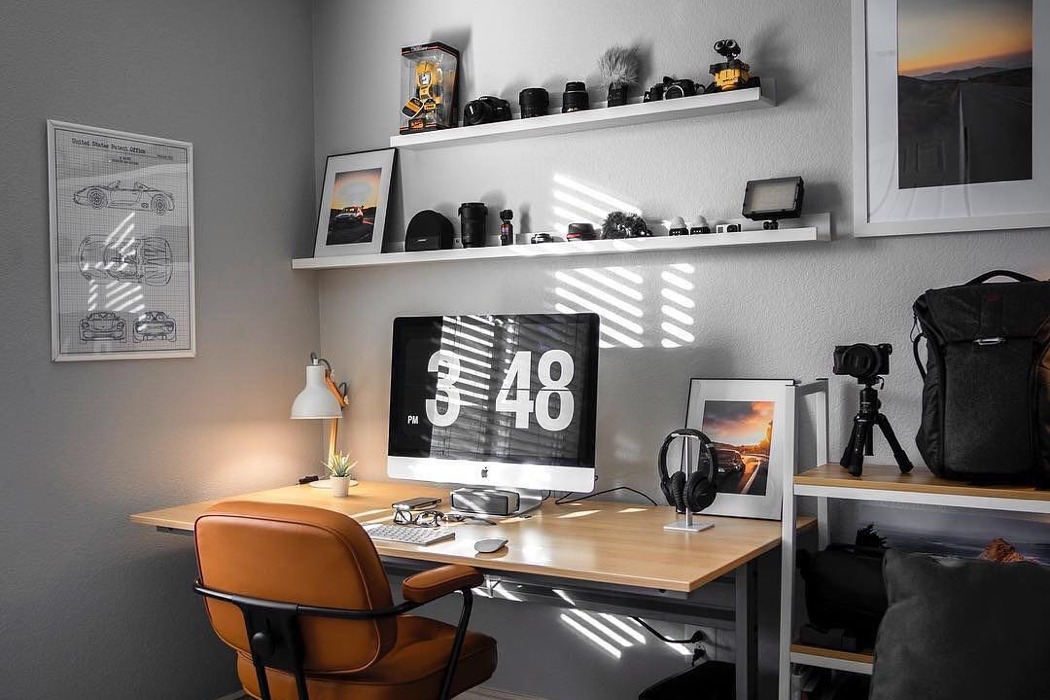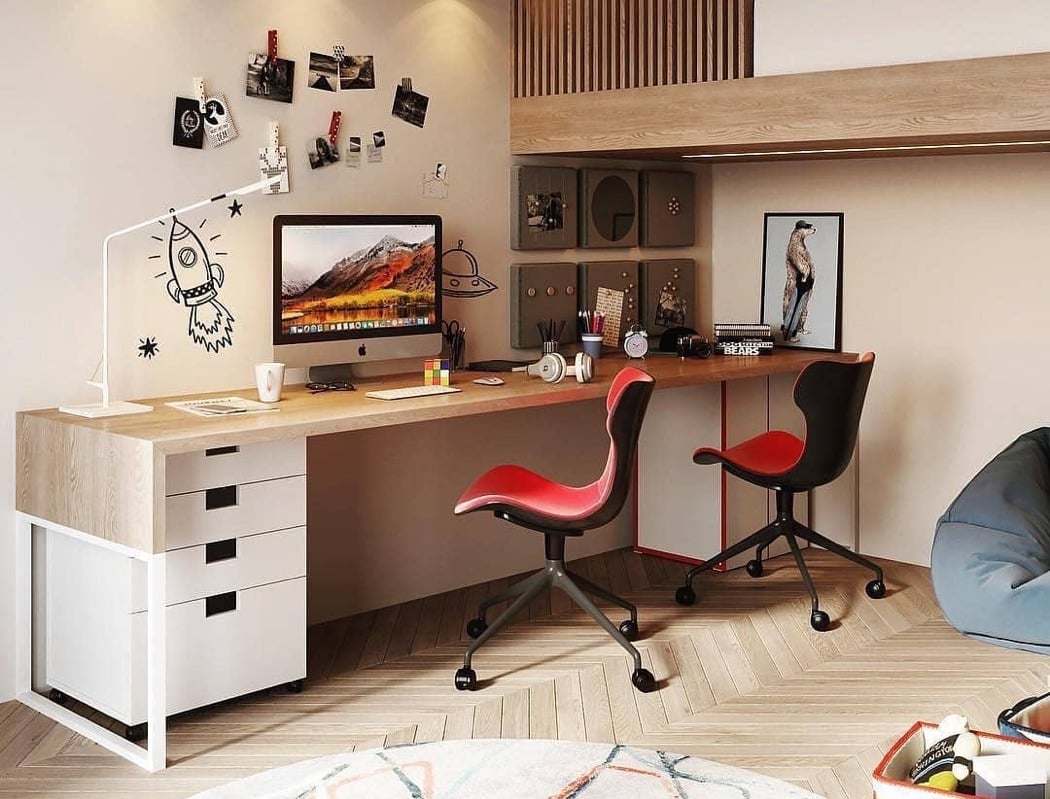
If your job requires you to sit at a desk, you probably spend more waking hours at that desk each day than you do in your own home (or in any other part of your home, if that’s where you work from). If you love your job, this may not seem like such a bad thing, but it’s still worth maximizing your small space for ultimate productivity.
We asked design and productivity experts for advice on how best to structure, organize, and decorate your desk to create a workspace that serves you, keeps you on task, and makes you feel good about what you’re doing.

Focus on Functionality
Keep it simple and functional with items you use all the time. My desktop must-haves include a stapler; a jar of pens, pencils, and highlighters; a candle; and, most important, my planners. My life is in my day planner, so having that right next to me as I work ensures that I stay on task and plan accordingly when responding to emails. It also has all my important to-dos and papers right inside.
— Meghan Meredith, life coach and home organizer; Atlanta, Georgia
Practice Minimalism
Having a clear space helps you avoid decision fatigue. If you have a lot of clutter on your desk, it creates a lot of stimuli for your brain to constantly react and respond to. Likewise, if you have a lot of stuff in your space that you have to move and shift around, you’ll likely feel flustered and spend more time finding the things you need. Be intentional and selective about what goes where. If you have a lot of decor you love, consider switching it out weekly instead of trying to fit it all on your desk at once.
— Sarah Steckler, productivity expert
Organize Based On How You Work and Think
The way you set up your desk should depend on your job and mirror the flow of your thoughts and materials. If you’re a linear thinker or someone who works based on task categories (prospecting, invoicing, brainstorming), you might prefer to separate papers and other items based on type. If you’re a web thinker or work based on clients or projects, organize your desk that way, with a cubby or file assigned to each of those clients or projects. It all depends — do you want to focus on the process or the project? Adjust your workspace accordingly.
— Stever Robbins, executive coach and host of the Get-It-Done Guy podcast; Cambridge, Massachusetts
Bring your Values to the Forefront
Something I’ve always found helpful and have suggested to plenty of clients throughout my years is to put a reminder of your values front and center, whether that’s with a Post-it Note, a printout, or a computer screen background. That way, when you’re feeling overwhelmed and need to decide what to tackle next, you can use those values to help you decide what to do. For instance, if you value flexibility and haven’t had much lately, it might be time to reprioritize a bit so you remember to honor what matters to you. It’s really easy to get swept up in work and spend time on less important things.
— Kelly Poulson, life and career coach; Philadelphia, Pennsylvania
Use Multiple Screens to Keep you on Track
One thing I find that provides a significant advantage is the use of double monitors or very large screens. With the increasing demand to work in multiple applications simultaneously, having dual monitors allows that to happen and helps increase workflow efficiency by making data sharing between applications a breeze.
— Tristan Layfield, career coach; Detroit, Michigan
Add Green
Studies have proven that plants enhance how we feel in our interior environments. Some research suggests that being near plants can reduce stress, minimize anger, and contribute to well-being.
— Amanda Amato, interior designer; Pompton Lakes, New Jersey
Adapt a “Desktop Zero” Habit
Clutter isn’t evil during a project, but it certainly isn’t necessary all the time. That’s why I adopted the practice of “desktop zero,” just like inbox zero for email: At the end of a task or project, I clear my desk of everything I don’t need sitting out. This keeps my desk clean most of the time but allows me to be super messy when I’m deep in the middle of something important.
— Jeff Sanders, author of The Free-Time Formula and The 5 A.M. Miracle; Nashville, Tennessee
Put your Goals in Plain Sight
Your workspace should hold you accountable and inspire you. I love to have my yearly vision board right above my desk, as well as specific 30-, 60-, and 90-day goals posted on the wall for my life and business. I also like to have positive affirmations, inspirational quotes, photographs, and fun banners.
— Danise Sumner, owner of Busy Bee Productivity Coaching; Richmond, Virginia
Display Feel-good Photos
Bringing nonwork elements into your workplace through photos can help serve as a reminder that life is about more than work. And if you have photos on your wall from an experience — be it a trip to a beautiful national park or that roller coaster you went on with your childhood best friend — you are decorating your space with memories that spark joy. When your mood is better, you’re bound to have a more positive outlook.
— Abby Wolfe, career coach; Portland, Maine
The original write up by Alli Hoff Kosikhere on Medium.
YD’s endeavor is to increase efficiency by connecting employers to their ideal candidates. Yanko Design has curated industrial design followers for the past 15+ years, and we know these are the best match for your company. To recruit now, post a job with us!